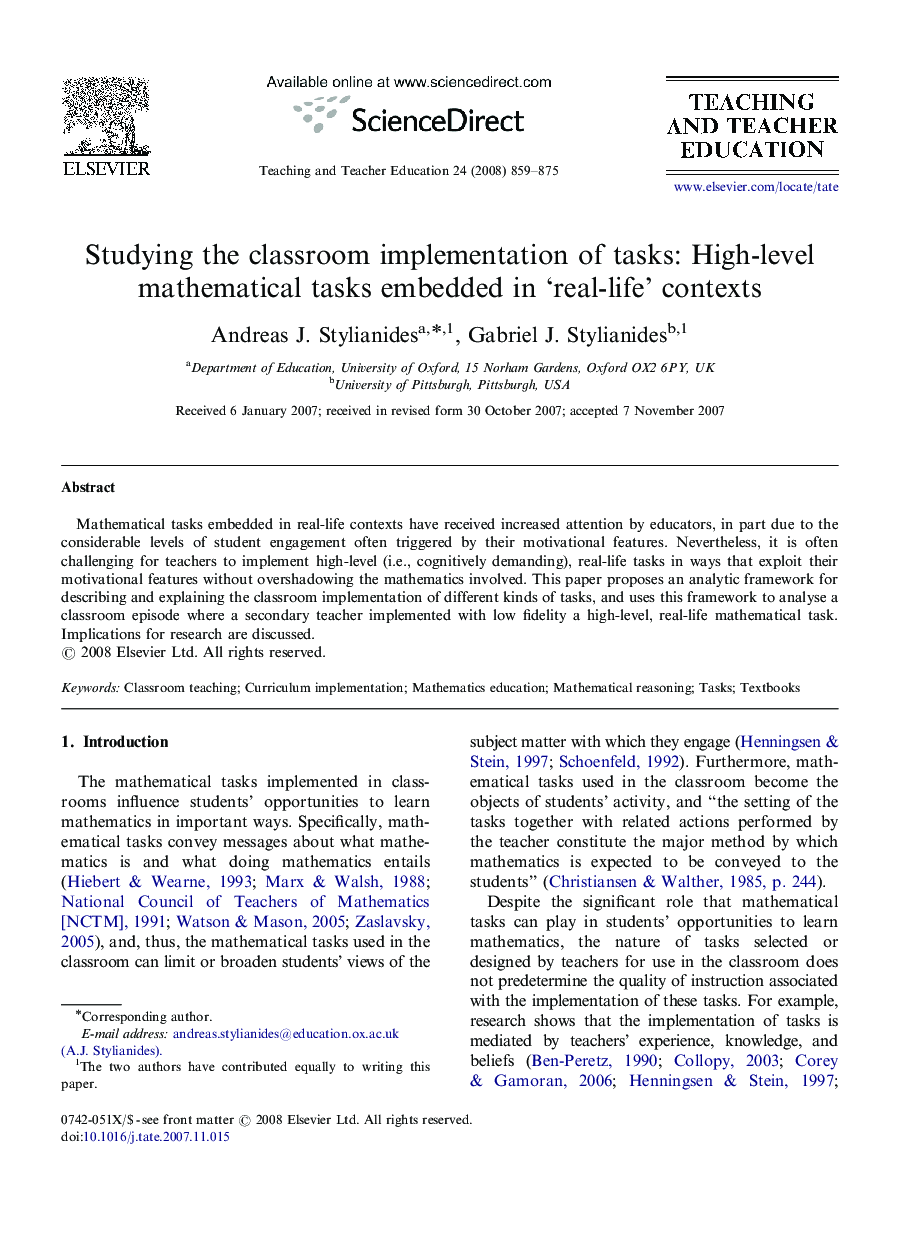| Article ID | Journal | Published Year | Pages | File Type |
|---|---|---|---|---|
| 374779 | Teaching and Teacher Education | 2008 | 17 Pages |
Mathematical tasks embedded in real-life contexts have received increased attention by educators, in part due to the considerable levels of student engagement often triggered by their motivational features. Nevertheless, it is often challenging for teachers to implement high-level (i.e., cognitively demanding), real-life tasks in ways that exploit their motivational features without overshadowing the mathematics involved. This paper proposes an analytic framework for describing and explaining the classroom implementation of different kinds of tasks, and uses this framework to analyse a classroom episode where a secondary teacher implemented with low fidelity a high-level, real-life mathematical task. Implications for research are discussed.
